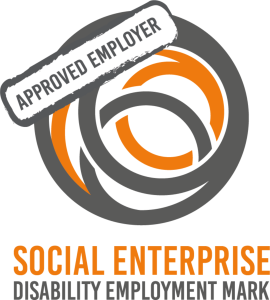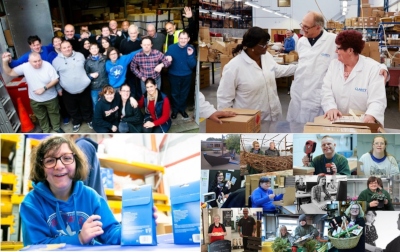Challenging perceptions to close the disability employment gap
Friday 28th June was the fourth UK Employability Day; a day for employers and employment support organisations to celebrate their hard work supporting people to enter or progress in employment. The theme this year was ‘Closing the Gaps’; with the disability employment gap – the difference in the rate of employment of disabled and non-disabled people – at around 30%, a figure which has remained unchanged for more than a decade, action clearly needs to be taken.
I’m very new to this specialist field but my main observations have been that disabled employment often seems to be stereotyped into a) volunteering or b) low paid manual work. According to Scope, 1 in 3 people see disabled people as less productive than non-disabled.
Such attitudes have led to significant unemployment, underemployment and under-valuing of the skills that disabled people can bring to the workplace. Often, this could be changed with minimal adjustments and a more flexible and creative approach to how a particular job is carried out.
I watched the final episode of The Restaurant that Makes Mistakes recently and although it did a good job of raising the profile of what people with dementia can do on a voluntary basis, I was disappointed that a) it could not be carried on as a social enterprise if it was a viable business, and b) that it’s led to mainstream restaurants taking on more people with dementia in an unpaid capacity. If they are doing a good job, why are they not being paid for it? Disabled people should not be subsidising the profits of the restaurant trade!
With this in mind, we welcome some positive messages coming out of Government – Theresa May recently announced a set of new measures to break down barriers faced by disabled people. This included a consultation on proposed measures to help employers better support disabled people and those with long-term health conditions in work, which will be published soon.
At a recent roundtable discussion with DWP and organised by UnLtd, I was pleased to connect with like-minded businesses to look at how social enterprises and entrepreneurs can be supported to address the disability employment gap and to support UnLtd in its aims to help address this with Government.
 Over the last 18 months, we have been working with the Supported Business Steering Group to develop a new quality standard for social enterprises that have a focus on providing supportive employment for disabled people. The Social Enterprise Disability Employment Mark (SEDEM), launched in April, has been designed to ensure that employment standards for disabled people are raised and are fulfilling the greater challenges set out in the 2011 Sayce Report, which examined how more disabled people could be supported into employment.
Over the last 18 months, we have been working with the Supported Business Steering Group to develop a new quality standard for social enterprises that have a focus on providing supportive employment for disabled people. The Social Enterprise Disability Employment Mark (SEDEM), launched in April, has been designed to ensure that employment standards for disabled people are raised and are fulfilling the greater challenges set out in the 2011 Sayce Report, which examined how more disabled people could be supported into employment.
SEDEM recognises exemplar employers that promote equality and diversity, by providing valuable support to those people that encounter the greatest barriers to work, enabling them to find and maintain meaningful employment. It’s not just about providing a job for disabled people, it’s about creating good quality jobs and providing a pathway for career development.
We want more social enterprises and entrepreneurs to think about how they can move into being exemplars of good practice in helping disabled people get decent jobs. We encourage people to register their interest in applying for this new standard of transparency, which includes a Committed status for those that are not quite there yet.
We need to shift attitudes and move to action. Many people experience some kind of disability or long term condition over their lifetime. Currently we are missing out on the extensive skills that disabled people can bring, and the fact is that increased diversity in the workplace can actually increase business performance.
Social enterprises are well placed to lead by example, being values led businesses. So what’s stopping us?
Guest blog written for UnLtd, published on 19th July 2019






